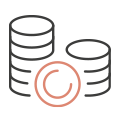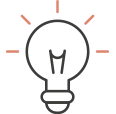It is assumed that if mathematics teachers were able to analyze student thinking and stages of learning, they would find it easier to diagnose their difficulties, and respond to them on an individual basis, helping students overcome specific challenges. However the common assessment tools allow teachers only to check on student performance, as expressed by summative exam results. To address this issue, the foundation has approved a number of programs designed to help teachers and students diagnose common errors and misconceptions, and present information and recommendations on how to help each student, based on their progress.
A world renowned researcher from the University of Haifa, Professor Michal Yerushalmi, is now proposing to take this concept a step forward, by introducing technological tools. Her plan is to conduct a thorough mapping of the algebra, geometry and analysis assignments which are required at the advanced five unit learning track, and then to extract the elements of knowledge, skill, and thinking which students rare equired to perform. Based on this mapping and analysis, a technologically-based template will then be developed for each topic that will allow teachers to create assessment tasks.
The software will provide feedback for teachers and students on the student learning and performance in real time, with in-depth reference to knowledge, skills, and thinking that the student has demonstrated or found difficult. The long-term plan is to create 10 packages, which will include a collection of tasks that form a whole assessment process which tests knowledge and skills for a specific topic. The packages will allow teachers to see different representations of the assessment for each student and for the whole class.
The promise of this innovative tool will be dependent on the willingness of teachers to use it in their instruction, as well as on the availability of technological platforms (personal computers, tablets or smartphones) in classrooms. Therefore, the current recommendation is for the initial development and feasibility testing of the program.
* The text above shows the grant as approved by the Foundation’s Board of Directors / Grant 112




